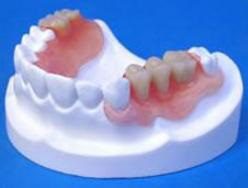Brushing your teeth twice a day is one of the most vital aspects of taking care of your dental; brushing your teeth removes plaque and pathogens and keeps your teeth clean. On the other hand, Brushing may only be effective if people use the proper technique. Below are the best tips for dental care
Brush Regularly but not aggressive basis.
Brushing your teeth twice a day is one of the essential practices for removing plaque and bacteria and keeping your teeth clean. On the other hand, Brushing may only be effective if people use the proper technique. Brushing should be done in small spherical motions, making sure to brush each tooth’s front, back, and top. This procedure takes between 2 and 3 minutes to complete. People should avoid back-and-forth sawing motions. Tooth enamel and gums can be damaged by brushing too hard or with a hard-bristled toothbrush. It can cause tooth sensitivity, permanent damage to the protective enamel on teeth, and gum erosion.

Apply fluoride
Fluoride is derived from the element fluorine found in the earth’s soil. Fluoride is widely believed to help prevent cavities by many experts, and it is a mutual ingredient in toothpaste and mouthwash. However, some dental products do not encompass fluoride, and some people do not use it. If a person takes decent care of their teeth, proof suggests that a lack of fluoride can lead to tooth decay. A recent study discovered that Brushing and flossing do not prevent cavities if a person does not use fluoride.
Floss at least once a day
Flossing can remove plaque and bacteria between the teeth, where a toothbrush cannot. It can also aid in averting bad breath by removing debris and food lodged between the teeth.
See a dentist regularly.
Experts endorse that people visit a dentist for a checkup every six months. A hygienist will sparkling the teeth and remove plaque and toughened tartar during a routine dental examination.
The dentist will examine you for visible cavities, gum disease, mouth cancer, and other oral health problems. They may also use dental X-rays to look for holes.
Keep sugary and starchy foods to the lowest.
Cavities can develop as a result of sugar consumption. Sugar continues to be linked to poor dental health outcomes, according to research that has been conducted in recent years. Candy and desserts are two of the most common sources of added sugar, but many processed foods also contain added sugar.
Consider using mouthwash.
Mouthwashes can improve oral health. A meta-analysis found that mouthwashes containing specific essential oils are also effective. People may want to ask their dentist which mouthwash is best for their particular needs. Mouthwash can never replace brushing and flossing, but it can help to supplement these practices. Click the link to get the best Dental Care in Eatontown.








